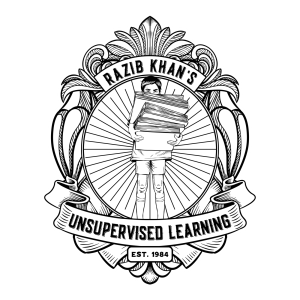
Razib Khan's Unsupervised Learning
Science:Life Sciences

The Indian caste system: origin, impact and future
 2023-10-01
2023-10-01
In the US, roughly 1 in 33 infants are born with a congenital disability, about 25% of which have an identified genetic cause. For the first time,, parents can use Orchid’s whole genome sequencing to screen their embryos for these genetic variants and mitigate their baby’s disease risk. Check out orchidhealth.com, and use code RAZIB when signing up to skip the waitlist.
What is caste? This is a question many Americans have been asking since the publication of Isabel Wilkerson’s Caste: The Origins of Our Discontents (an Oprah's Book Club selection). On this episode of Unsupervised Learning, Razib talks at length about the historical, cultural and genetic aspects of caste. He explains the genetic origins and impacts of the practice in the Indian subcontinent, and how that contrasts with “caste” in other societies like feudal Japan. Razib also explores how caste, a European-origin word, came to bracket a sociological phenomenon that includes two related concepts, varna and jati, and how the former is abstract while the latter is concrete.
Caste in the Indian subcontinent has massive social and political implications. Razib talks about the demographics of caste, and how this is relevant to considerations of equity in a nation-state originally founded on socialistic principles. In the subcontinent, caste is not simply a Hindu phenomenon but extends to Muslims and Christians. And in a subcontinent of nearly 2 billion people, caste expresses itself in varied ways depending on region.
Finally, Razib ponders the future of the institution. If diasporic communities like Mauritius and Guyana are any guide, caste has a dim future. With urban jati exogamy rates increasing constantly over the last generation, Razib predicts that in the 22nd century caste in the subcontinent will be viewed as a outmoded practice continued only by a few communities. Caste is a question that is relevant to both the past and the present, but the forces of modernization will eat away at its foundations going forward.
More Episodes
 2024-11-07
2024-11-07
 2024-11-05
2024-11-05
 2024-10-30
2024-10-30
 2024-07-10
2024-07-10
 2024-07-02
2024-07-02
 2024-06-16
2024-06-16
 2024-06-07
2024-06-07
 2024-05-14
2024-05-14
Create your
podcast in
minutes
- Full-featured podcast site
- Unlimited storage and bandwidth
- Comprehensive podcast stats
- Distribute to Apple Podcasts, Spotify, and more
- Make money with your podcast
It is Free
- Privacy Policy
- Cookie Policy
- Terms of Use
- Consent Preferences
- Copyright © 2015-2024 Podbean.com




